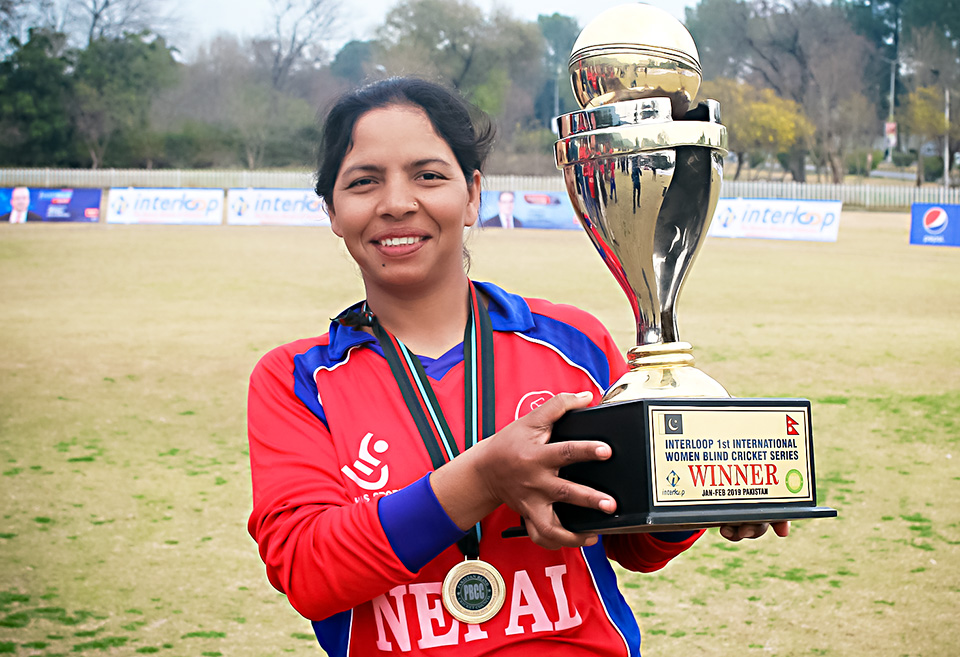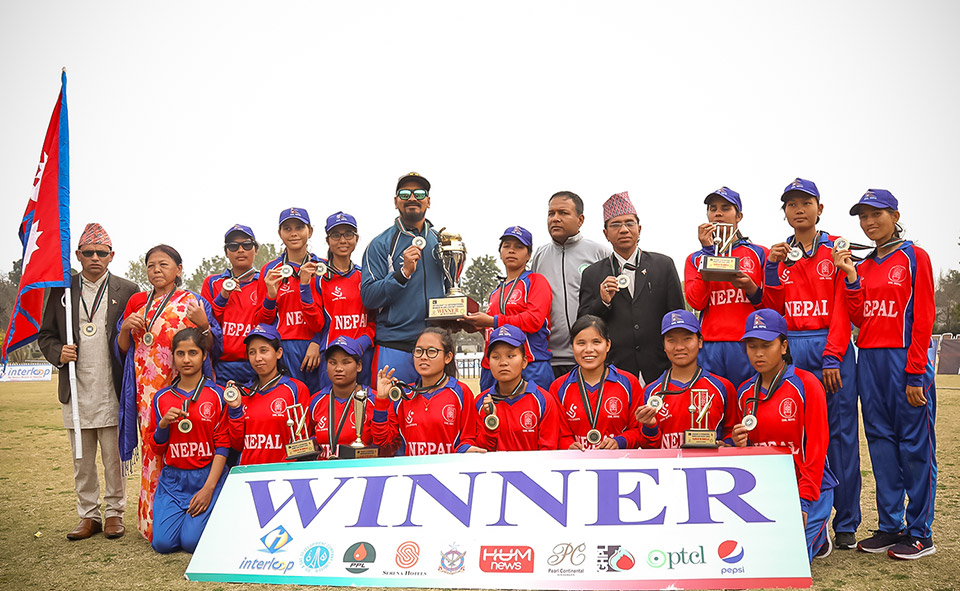From where I stand: “We won the First International Women’s Blind Cricket Series”
Bhagwati Bhattarai-Baral is the Team Captain of Nepal’s National Women’s Blind Cricket Team. The team recently won the First International Women’s Blind Cricket Series held in Pakistan in February 2019. Bhattarai-Baral and her teammates have overcome many challenges to prove that women with disabilities can be competitive professional athletes.Date:

I have been playing cricket since 2007, after receiving a one-week training at my school. I was in eighth grade then and the training was open to everyone in my class. We started playing amongst friends, sometimes even skipping classes to play cricket. Back then, our families weren’t supportive. No one believed that we would make it very far. Our society did not have confidence in blind players like us.
We faced many challenges to continue our passion for cricket. It was hard to find players and come together to practice. People living with disabilities often undermine their ability to play sports due to mobility restrictions and negative stereotypes and perceptions towards people living with disabilities. But despite these challenges, my team and I persisted. We defeated the English team in 2014, in a 3-match series held in Nepal. This year, we won the First International Women’s Blind Cricket Series held in Pakistan. Today I have earned respect in my society as a national level cricket player. I feel proud to have represented my country in an international platform. It has also boosted my confidence and sense of leadership. People in my community have now started believing that blind players are as capable as anyone else. If provided with opportunities, women and girls with disabilities can also demonstrate competence.

Due to limited financial resources and facilities provided to blind players, we still face many challenges in terms of accessing suitable ground and equipment, even when we are preparing for international matches. But we haven’t given up. I want to continue playing and lead my team to the World Cup. I also want to support the blind community. I want to bring more women and girls to the game and coach them. With everyone’s support, my plans might just work out.”
Bhagwati Bhattarai-Baral (second row, centre) is a 27-year old cricket player and the team captain of the Nepal Women’s Blind Cricket Team. UN Women, together with UNICEF, UNDP, UNFPA, and the Swiss Agency for Development and Cooperation supported the team to participate in the First International Women’s Blind Cricket Series held in Pakistan in February 2019. The achievements of Bhattarai-Baral and her team have contributed to Sustainable Development Goal 10, which seeks to empower and promote the social, economic and political inclusion of all, irrespective of age, sex, disability, race, ethnicity, origin, religion or economic or other status. Their work also relates to Sustainable Development Goal 5, which seeks to provide women and girls with equal access to education, health care, decent work, and representation in political and economic decision-making processes.